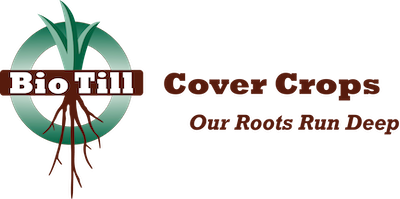For this episode of the No-Till Farmer Podcast, we’re headed to Cajun Country for a talk with fourth-generation farmer Justin Fuselier. Corn and soybean operations dominate most of our readership here at No-Till Farmer, according to our benchmark survey, but Justin stumbled onto something he thinks holds promise in Lousiana, where crops like rice and sugarcane are far more common.
First a few notes:
Justin’s way into grazing and livestock. His start with chickens, for example, stems in part from traditional mardi gras. Unlike the parades, crewes and floats of the New Orleans mardi gras, traditional mardi gras involves roving bands of revelers going from house to house to collect alms ahead of the Lent. Justin was part of one such band, and at one house, the owner released a rooster as an alm. Justin captured the rooster early in the day, and carried it with him, sharing beer and food.
That beer-swilling party rooster was the start of his chicken flock. Justin also politely declines from attempting a difficult name at one point during our conversation. He’s referring to the book “One Straw Revolution,” by Masanobu Fukuoka.
At another point during our conversation, Justin refers to a Google maps of the Cajun prairie. You can find a duplicate below.
Let’s get into it with Justin Fuselier of Eunice, La.:
No-Till Farmer podcast series is brought to you by Bio Till Cover Crops.
Bio Till Cover Crops, a pioneer and leader in cover crop seed, represent a complete lineup of seeds suitable to a wide range of soils types and growing conditions. Bio Till Cover Crop vendors are committed to your success and provide local resources, education, guidance, and all the tips and tricks we know, to ensure your plantings have the correct foundations for success. The original producers of Bounty Annual Ryegrass, Bio Till Cover Crops continue to add new and improved cover crop and forage varieties, including Enricher Radish, Bayou Kale, Shield Broadleaf Mustard, African Forage Cabbage, and Mihi Persian Clover. With over 30 years of experience in production, processing, packaging, and shipping, you won’t be able to find a better fit for your farm anywhere else.
Full Transcript Coming Soon











